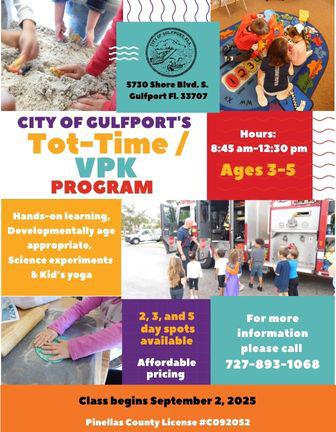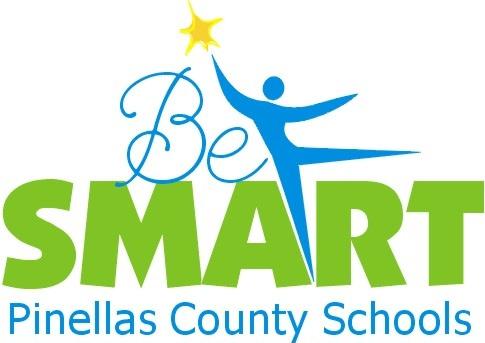




























The summer’s almost over and you’re ready to take a deep breath of relief!
You’re making it through the scorching and/or soggy days of summer and still have most of your sanity intact. Over are the endless scheduling coordinations of dropping little Johnny at soccer camp at 8:00 am while racing across town to drop Megan at dance camp in time to get to the office before your boss gives you another one of those, “So, you’re late again?” stares.
Almost over are the mind boggling questions at the end of the business day like, “What camp are the kids at today and who’s picking them up?” Almost over are the sports camps, dance camps, acting camps, arts ‘n craft camps, computer camps, half day camps, full day camps, extended before and after care... what time to drop them off, pick them up... Do they provide lunch? Do I pack lunch? OMG! What if the kid gets sick! ARGGGGH!!!
and live in Pinellas, you need to hit the gridlock by 7:45 am to be sure your boss doesn’t give you the aforementioned, “So, you’re late again?” stare. That works great if you have kids in high school since their day starts at 7:25 am. Of course, high school age kids can pretty much get themselves back and forth to school on their own. If you have younger kids, things get a little trickier.
You find a program that has afterschool pickup. Johnny has been doing martial arts and there are some dojos that have after school pick-up from the schools. Check. And we have Megan being picked up after school from her morning before and after school program. Johnny is picked up by his martial arts program and they’re just a couple of miles apart.
Breathe deep, now you don’t have to rush out of the office at the end of the day, you can even stay late to work on that proposal and watch your boss leave before you.

But soon, the kids will be back in school and your life will return to normal. But, normal, as we all know, is a relative term...
In case anyone was paying attention, the business community and the educational system are not on the same schedule. Now, if you work a nine-to-five day, say in Tampa
Most elementaries start at 8:45 am and most middle schools start at 9:40 am, way past your 7:45 am appointment with the Courtney Campbell Causeway. So, now you need before-school child care, kinda like a mini-summer camp. OK, so you find one of those Before and After School Programs that provide early morning drop-off and off to the office you go, problem solved. Well, not quite.
Little Megan gets out of elementary school at 2:55 pm and Johnny leaves his middle school at 4:10 pm. You absolutely don’t want to add a, “So, you’re leaving early again?” stare to your boss’ arsenal, so what to do?
Game, Set, Match! And, you’re looking forward to sleeping in this Saturday morning and having a relaxing weekend.
But wait!
Little league practice is at 8 am Saturday morning and swim team’s on the other side of town at nine! There’s shopping for school supplies, one of the kids needs new sneakers and they both need haircuts! PTA anyone?
No worries, you can rest when the kids are all grown up...
By the way, ever heard of
grandkids?!?!


























child’s attitude, confidence, and performance both socially and academically that will last throughout the year. The transition from July to August can be difficult for both children and parents. Even children who are excited to return to school must adjust to the greater levels of activity, structure, and, for some, pressures


The degree of adjustment depends on your child, but as parents you can help your child and the rest of the family manage the increased pace of life by planning ahead, being realistic, and maintaining a positive attitude.
Here are a few tips to help ease the transition and promote a successful school year experience:
Good physical and mental health is essential for your child’s success in the new school year. This is the perfect time to schedule doctor, dental and eye checkups. If your child intends to participate in sports or other extra-curricular activities that require a physical, now is the time to do it! Have your children join in the discussion regarding what they think they would like to do and plan accordingly. This is also a great way to discuss reasonable expectations regarding balancing extra-curricular activities and school work, as well as family expectations with chores and social activities.
Often schools have their new school year information posted on their web site or will send it by mail. Take time to review the material as it arrives and include your child in the review. These packets normally include important




Some teachers require specific supplies, so save receipts for items you may need to return later.
Plan to re-establish the bedtime and mealtime routines at least 1 week before school starts. Prepare your children for this change by talking about the benefits of school routines so they won’t become over tired or overwhelmed by school work and activities. Include pre-bedtime reading and household chores if these did not occur over the summer. Morning routines are
especially important including breakfast! Planning for the next day by prepacking backpacks and laying out clothes and shoes for the next day will help minimize morning chaos and get the day off to a good start. Make lunches the night before. Older children can help or make their own. Give them the option to buy lunch in school if they prefer and finances permit.
Acknowledge your child’s anxiety if there was a bad experience the previous year. Children who had a difficult time academically or socially or were teased or bullied, may be more fearful or reluctant to return to school. Reassure your child that the problem will not occur again in the new year, and that you and the school are working together to prevent any issues.
If your child is young or in a new school, visit the school with your child. Meeting the teacher, locating the classroom, locker, lunch room, etc., will help ease anxieties and also allow your child to ask questions about the new environment. Call ahead to make sure the teachers will be available to introduce themselves to your child.
If time and finances permit, pre-cook and freeze a few meals that will help make the first couple weeks of evening meals easier. Having dinners prepared ahead of time will help by not adding to household stress during the first week of school and decrease the chances of making unhealthy snack choices when your child gets home from school “starving.” Slow cookers like Crock Pots are a wonderful thing. Not only will dinner be done when the family arrives home from a busy day but the house smells great and clean-up is so much easier! (Slow Cooker Tip: Discover slow cooker liners. They make clean up even easier. Find them in the foil and plastic wrap aisle.)
Talk to your children about plans for before and after school. Before and after school programs like R’Club Child Care are great resources to tap. Not only will your child have a safe place to go before and after the bell rings, but programs like R’Club will support your child’s pursuit of academic excellence. Homework assistance and tutoring are readily available, as well as structured outdoor activities, planned to promote cooperation, sportsmanship and

the social and physical development of children. Programs have a variety of benefits which include learning skills to deal with peer pressure, bullying and conflict resolution.
Send a quick note to your child’s teachers to let them know you are interested in getting regular feedback on how and what your child is doing. Be sure to attend Back-to-School Night and introduce yourself to the teachers. Find out how they like to communicate with parents (e.g., notes, email, or via phone calls).
To the extent possible, postpone business trips, volunteer meetings and extra projects. You want to be free to help your child acclimate to the school routine and minimize the confusion or anxiety many children experience at the start of a new school year.
Make sure your child has plenty of time to get up, eat breakfast and get to school. For very young children taking the bus, pin an index card to their shirt or backpack with pertinent information including their teacher’s name, bus number and your daytime contact information. Set alarm clocks. Have school-age children set their own alarm clocks to get up in the morning. Praise them for a prompt response to morning routines and being ready for car pool or bus pick ups.
If possible, plan to volunteer in the classroom at least periodically throughout the year. Doing so helps your child understand that school and family life are linked and that you care about the learning experience. Most teachers welcome occasional parent help, even if you cannot volunteer regularly.

Your child may benefit most from one or two activities that are fun, reinforce social development, and teach new skills. Too much scheduled time can be stressful, especially for young children, and may make it harder to concentrate on schoolwork. When
considering extra-curricular activities, keep your family schedule and personal energy level in mind. Multiple activities per child may be too much to manage, particularly if the activities have overlapping times, are in different locations or require your attendance.
If your child does not want to participate in organized extra-curricular activities, you may want to explore other options to help build interests and social skills. For example, check out the local library for monthly reading programs. Find out if your local recreation or community center offers drop-in activities such as art or cooking classes. Craft and building supply stores sometimes offer children’s programs. Talk to other parents and schedule regular play dates and park activities with their children.
From the entire team at R’Club Child Care, we wish you and your child a successful and enriching school year. With over 47 locations including Early Learning Academies, Elementary School Age Programs, Middle School Programs and many other support services, R’Club provides quality programs that promote school readiness and ongoing academic success so that children become life-long learners and productive citizens. Please let us know how we can help support you and your child’s school success! 4140

www.rclub.net





August 11....................
September 1................
September 19..............
October 10...................
October 13...................
November 22-30..........
December 19................
December 20-January 4
January 5.....................
January 19...................
February 13..................
February 16..................
March 13......................
March 14-22................
April 3..........................
April 27........................
May 25.........................
May 28.........................
First Day of School
Labor Day Holiday-School Closed
No school for students
End of First Quarter
No school for students
Thanksgiving Holidays-School Closed
End of Second Quarter
Winter Holidays-School Closed
Second Semester Begins
Dr. MLK, Jr Day-School Closed
No school for students
No school for students
End of Third Quarter
Spring Holidays-School Closed
Holiday - No school for students
No school for students
Memorial Day-No school for students
End of Fourth Quarter. Last Day of School